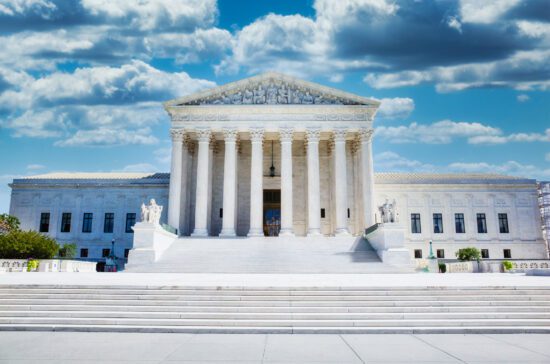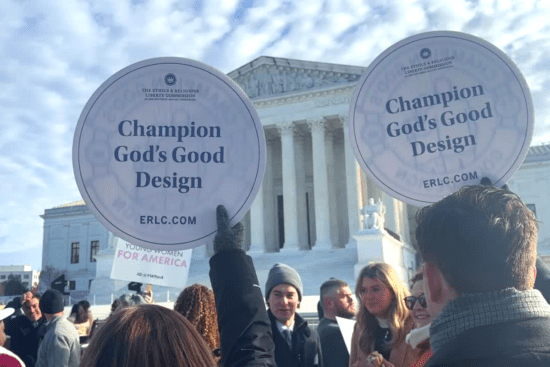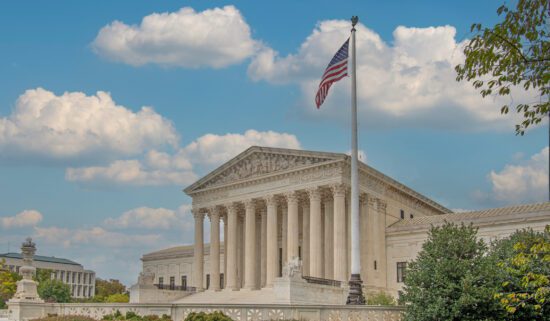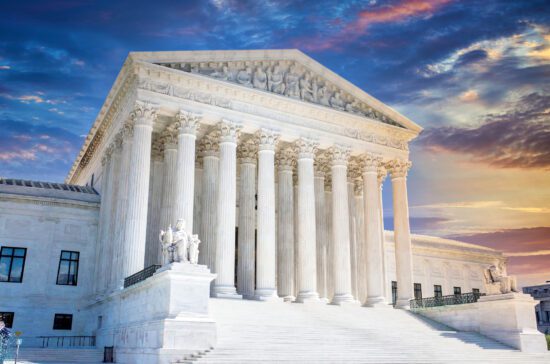On Jan. 15, 2025, the Supreme Court will hear arguments in a case on protecting kids from pornography. The case is named Free Speech Coalition, Inc. v. Paxton, with Texas Attorney General Paxton arguing on behalf of the State of Texas. This case will determine if a Texas state law protecting children from being exposed to sexually graphic material online through requiring websites to implement age verification will be able to remain in place. The ERLC filed an amicus brief in conjunction with both the Southern Baptists of Texas Convention (SBTC) and the Baptist General Convention of Texas (BGCT) supporting this law in November, highlighting that Southern Baptists are opposed to pornography in any form and seek to protect children from exposure to it.
How does Texas House Bill 1181 protect kids from exposure to pornography?
In June of 2023, the Texas state legislature passed House Bill 1181, which requires any websites that distribute “sexual material harmful to minors” to verify users are 18 or older to allow them to use the website. These standards would apply to any websites that “knowingly and intentionally” publish or distribute harmful sexual material and would apply to both pornographic websites and to some social media platforms, provided the website in question consists of at least 1/3 of its total content being such material.
The bill defines what is considered “sexual material harmful to minors” by including various forms of nudity and pornography.
In order to implement these standards, websites are required to implement a process known as age verification.
- Broadly speaking, age verification is the process by which companies can verify the age of their users through a number of different means.
- This may include submitting a photo of a driver’s license or other official government identification to allow access to the website or otherwise proving the age of the user.
- Under this law, applicable websites and platforms are required to implement some form of age verification and are prohibited from indefinitely storing such information about users.
- Additionally, Texas HB 1181 requires applicable websites to display a health warning on their website informing users of the addictive nature of pornography and providing information for a helpline.
In the event a website refuses to comply with these standards, they may be assessed fees amounting to $10,000 per violation or per day not implementing age verification. If a minor is found to access harmful sexual material due to a website’s lack of compliance, an additional fine of up to $250,000 may be assessed.
This law was permitted to go into effect on Sept. 1, 2023.
What are the core arguments of this case involving protecting kids from pornography?
The primary opponent of this law is NetChoice, LLC, which is a lobbying organization representing over 35 major technology companies. NetChoice has launched a series of lawsuits in states with similar laws including the Utah Minor Protection in Social Media Act as well as successfully argued against recent Texas and Florida social media bills at the United States Supreme Court. They are also outspoken critics of federal legislation, such as the Kids Online Safety Act (KOSA).
- The lawsuits at the center of this particular case call into question the constitutionality of age-verification laws, arguing that such policies violate the free speech of the entities themselves and, as a result, the court should implement a standard known as “strict scrutiny” to evaluate the constitutionality of such laws.
- Additionally, NetChoice claims that age verification may result in privacy violations and the storage of user data.
“Strict scrutiny” is the same standard by which the federal government enforces federal laws related to religious liberty and is the highest standard by which the federal government can protect key rights for individuals. By advocating for this standard, NetChoice is essentially calling upon the Supreme Court to argue that entities and organizations have a right to free speech, so much so that it is on par with the right to individual religious liberty.
NetChoice stated, “Texas . . . requires websites to block overly broad, vague speech categories, forcing online businesses to censor speech with unclear compliance standards…by forcing all websites to identify users, every digital service in Texas will need to collect more data and information on their users . . .”
In contrast, the state of Texas has argued that this law does not violate the existing constitutional rights of either private organizations or parents, but simply prohibits children from accessing pornography. Texas Attorney General Paxton stated:
“Let me put this simply: these companies do not have a right to expose children to pornography . . . Texas has a clear interest in protecting children, and we have been successful defending this commonsense age verification law against a powerful global industry. Several of these companies, when faced with a choice between protecting children from pornography and complying with Texas law, have stopped doing business in Texas. Good riddance.”
Why does the issue of protecting kids from pornography matter to Southern Baptists?
Southern Baptists are decidedly opposed to pornography and view it as an affront to God’s design for gender and sexuality. Furthermore, Southern Baptists have time and again passed resolutions that argue the government has proper jurisdiction and ought to protect children from accessing pornography and other explicit content online. In 2015, a resolution “On Pornography and Sexual Purity “was passed, in which Southern Baptists resolved to “call on government authorities to enact and enforce laws that restrict all forms of pornography, particularly those that include and exploit minors.”
In the ERLC’s amicus brief, which was joined by the Southern Baptists of Texas Convention (SBTC) and the Baptist General Convention of Texas (BGCT), the ERLC argued that this law should be permitted to remain in effect. In this brief, the amici stated:
“The amici believe it is an abundantly good law. But more importantly for the purposes of this case, it is also abundantly constitutional . . . [the First Amendment] was not originally understood to protect obscene expression, especially when such expression might be received by minors.”
As the Supreme Court considers this case, the ERLC will monitor and advocate for laws like Texas HB1181 to be upheld to ensure that children are protected from the lasting damage caused by pornography. We encourage our fellow Southern Baptists to join us in praying for the outcome of this case, for children to be protected online, and for helpful laws to this end to be applied at both a state and federal level as we work toward the eradication of the plague of pornography on our society.










